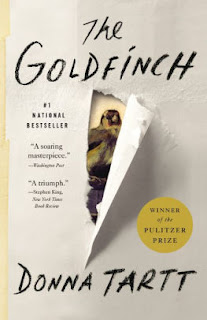Patricia Fara lectures in the history of science at Cambridge University, where she is a Fellow of Clare College. She is the President of the British Society for

the History of Science (2016-18) and her prize-winning book,
Science: A Four Thousand Year History, has been translated into nine languages. In addition to many academic publications, her popular works include
Newton: The Making of Genius,
An Entertainment for Angels,
Sex, Botany and Empire, and more. An experienced public lecturer, Patricia Fara appears regularly in TV documentaries and radio programs such as
In Our Time. She also contributes articles and reviews to many journals, including
History Today,
BBC History,
New Scientist,
Nature and the
Times Literary Supplement.
Fara's latest book is
A Lab of One's Own: Science and Suffrage in the First World War.
Recently I asked the author about what she was reading. Fara's reply:
Bleak House, by Charles Dickens
Somebody I Used to Know, by Wendy Mitchell
Whenever I swim back up to reality after being absorbed in a book, I try to prolong the pleasure by reflecting on how the world I’ve been reading about relates to my own experiences. I’ve just reread Charles Dickens’ Bleak House, and although I’m living in Venice, Italy for a few weeks, I immediately picked up many resonances. No doubt the associations were heightened by seeing the narrow alleyways of the city blanketed in  snow, and thronged with normally hyper-elegant Italians bundled up in bulky scarves and hats.
snow, and thronged with normally hyper-elegant Italians bundled up in bulky scarves and hats.
Paradoxically, the house of Dickens’ title is warm and welcoming, but Bleak House the narrative offers a bleak view of humanity, exposing over several hundred pages the melancholy fate of litigants so consumed by greed that the inheritance they are claiming disappears into the pockets of avaricious lawyers and petty bureaucrats. This plot line reminded me of the cruise ships that, by mooring in central Venice, are accelerating the apparently inexorable demise of their passengers’ favorite destination as the city slowly sinks into the lagoon.
Dickens’ novel is a savage indictment of cut-throat capitalism and its pernicious consequence: the yawning divide between rich and poor, which is nowadays reverting to Victorian dimensions. I thought back to Bleak House when I visited a 16th -century building near San Marco and the Doge’s palace, Venice’s medieval centres of power, and has been converted into a modern temple to wealth – a shopping-centre whose jaw-dropping prices make Harrods look like Walmart. Nearby, the artist Lorenzo Quinn has created a political statement as powerful as anything by Dickens: a giant pair of hands, two storeys high, which appear to be propping up an ancient mansion on the edge of the Grand Canal. Called ‘Support’, this sculpture evokes both the city’s fragility as it collapses, and the power of its administrators to halt the decline should they decide to do so. It made me remember that not all deterioration can be arrested by human will  alone. In Somebody I Used to Know, Wendy Mitchell describes her own brain’s irreversible descent into chaos as she succumbs to early-onset Alzheimer’s.
alone. In Somebody I Used to Know, Wendy Mitchell describes her own brain’s irreversible descent into chaos as she succumbs to early-onset Alzheimer’s.
Although supporting hands are provided by her two daughters and the medical system, it is Mitchell’s own determination to fight against the inevitable that makes this an inspiring rather than a depressing read. Her memoir is structured as a conversation between her present and former selves, and despite a tendency to cloying sentimentality (can bath bubbles really be filled with love?) it demonstrates how courage and initiative can help delay the slide into dependency. As well as practical tips – stick photographs of a cupboard’s contents on the door, set timers to tell you when it’s time for lunch – it includes painfully-won advice on what not to say when trying to help an
afflicted friend.
Horrifying as Mitchell’s story is, her resolute spirit offers laughter and hope, while the blackness of Bleak House is redeemed by the kindly Mr Jarndyce. Venice, the economy and the environment are still waiting for their saviours.
Learn
more about A Lab of One's Own at the Oxford University Press website.
The Page 99 Test: Erasmus Darwin.
--Marshal Zeringue
 Stanley's latest Miranda Corbie Mystery is City of Sharks.
Stanley's latest Miranda Corbie Mystery is City of Sharks.threads knit together to make a whole. American Colonies is awash in such connective revelations … for example, you will understand how embedded racism is in this country and why it was (and still is) inculcated as a means of dividing lower economic classes into powerlessness. Though I was already familiar with this general premise, Taylor made me realize the depth and specific motivation for the cultivation of racism as the ultimate economic weapon.




















































